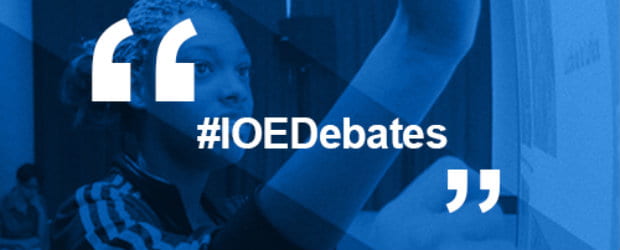What bookworms need to thrive
By Blog Editor, IOE Digital, on 10 February 2021
The benefits of reading for pleasure are many and varied, from the development of comprehension skills and vocabulary, to the enrichment of imagination and empathy.
For younger children, reading for pleasure builds the proficiency in literacy that accelerates their learning across the school curriculum, and this becomes a virtuous circle as they move on to more demanding texts. But not all children – or adults – view reading as a favourite pastime. For our latest ‘What if…?’ debate, we brought together children’s author and poet Joe Coelho, literacy experts Charlotte Hacking and Professor Gemma Moss, and social scientist, Professor Alice Sullivan, to assess the barriers and enablers to cultivating committed readers (you can learn more about our panel here). Along the way, we were delighted to be treated to a poetic tribute to reading, books and libraries.
Our discussion highlighted how the way in which literacy is taught and assessed in schools can be as much of an impediment as an enabler. An over-emphasis on reading as a proficiency and a sorting mechanism, manifested (more…)
 Close
Close




